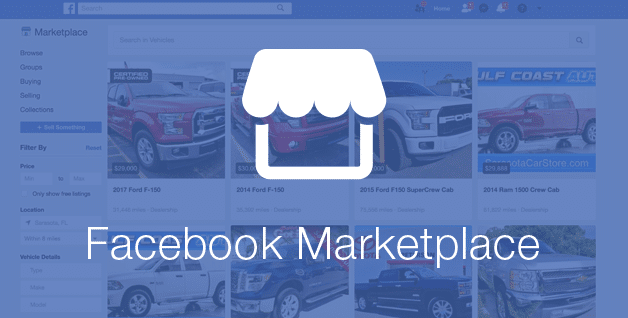
How to Mark Items as Sold on Facebook Marketplace
Selling unique, second-hand items on Facebook Marketplace is a fantastic way to reach millions of buyers. But if you’re crosslisting on platforms like eBay, Vinted, or Depop, marking items as sold quickly is crucial to prevent overselling and keep your reputation spotless. Here’s a clear, step-by-step guide on how to mark items as sold on Facebook Marketplace, with expert tips, UK-specific advice, and best practices for efficient inventory management.
Why Marking Items as Sold Matters
Over 30 million UK residents use Facebook Marketplace each month (Meta, 2025). For sellers of single-quantity goods - like collectibles or vintage homewares —- overselling is a real risk, especially when crosslisting. According to professional seller forums, 10–20% of negative feedback on crosslisted items comes from overselling or delayed status updates. Promptly marking items as sold is not just good practice; it’s essential for maintaining trust and complying with both Facebook’s and UK consumer laws.
Step-by-Step: How to Mark Items as Sold on Facebook Marketplace
1. Open Facebook Marketplace
- On desktop: Click “Marketplace” from the left menu.
- On mobile: Tap the Marketplace icon at the bottom of the app.
2. Go to Your Listings
- Click your profile picture or “Your Listings” to see all your active items.
3. Select the Item
- Find the item you want to update and click on it.
4. Mark as Sold
- Click the three dots (•••) next to the listing.
- Select “Mark as Sold” (or “Mark as Paid and Shipped” if you’re using Facebook’s shipping option).
5. Confirm the Sale
- Follow the prompts to confirm. The item will be removed from active search and marked as sold to buyers.
6. Update Other Platforms
- If you’re crosslisting, immediately update the item’s status on all other marketplaces to prevent double-selling.
Facebook’s Latest Policies: What Sellers Need to Know

- Transparency: Facebook requires sellers to update listings promptly when items are no longer available. Failing to do so can result in penalties or account restrictions.
- Accurate Descriptions: Listings must reflect the true condition and availability of items.
- No Duplicate Listings: Repeatedly failing to update sold status or posting duplicates can lead to account penalties.
- Shipping and Payment: If you use Facebook’s checkout, always mark as shipped or sold within the platform to ensure buyer protection.
For more on Facebook’s selling policies, visit Facebook’s Commerce Policies.
Common Issues and How to Solve Them
- Listings Not Updating: Sometimes, marked-as-sold items still appear. Try refreshing the page or logging out and back in.
- Crosslisting Confusion: If you sell on multiple platforms, it’s easy to lose track. Use inventory management tools or set reminders to update all platforms immediately.
- Buyer Disputes: If you don’t mark items as sold, multiple buyers may expect the same item, leading to disputes and negative feedback.
Best Practices for Preventing Overselling
Immediate Updates: As soon as an item sells on any platform, mark it as sold everywhere. This is the single most effective way to avoid double-selling.
Inventory Management Tools: Use a spreadsheet or, better yet, a crosslisting tool like Zipsale to track and sync your listings across platforms. Our automated delisting feature ensures that when you mark an item as sold on one marketplace, it’s removed from all others - saving you time and protecting your reputation.
Clear Communication: Message interested buyers promptly when an item is no longer available. This builds trust and reduces the risk of negative feedback.
Photo Best Practices: Use clear, honest photos and highlight any flaws. This reduces disputes and helps buyers make informed decisions.
Meetup Preferences: For local sales, always use public meetup spots for safety and confirm details in writing. For more on safe trading, see Action Fraud’s advice.
UK-Specific Advice and Legal Considerations
- Consumer Rights: Under the Consumer Rights Act 2015, sellers must describe items accurately and not mislead buyers. Promptly marking items as sold helps you comply with these regulations.
- Reporting Scams: Use Facebook’s reporting tools for suspicious activity. For serious cases, contact Action Fraud.
- Local Regulations: Some items (like knives or certain electronics) have specific UK restrictions. Always check UK government guidelines before listing.
Professional Insights: Why Automation Matters
Manual updates can work for a handful of listings, but as your business grows, automation becomes essential. Our members save up to 40 hours for every 1,000 listings by using Zipsale’s crosslisting and auto-delisting features. This not only prevents overselling but also lets you focus on sourcing and selling, not admin.
FAQ: How to Mark Items as Sold on Facebook Marketplace
Q: What happens if I forget to mark an item as sold?
A: The item may still appear as available, leading to multiple buyers and potential disputes. Facebook may also penalize your account for repeated issues.
Q: Can I mark items as sold from my mobile?
A: Yes, the process is similar on mobile — just tap the Marketplace icon, go to your listings, and follow the same steps.
Q: What if my item still appears after marking it as sold?
A: Refresh your browser or app. If the issue persists, try logging out and back in.
Q: How can I prevent overselling across multiple platforms?
A: Use inventory management tools or crosslisting software like Zipsale that automatically delists sold items everywhere.
Q: Are there legal requirements for marking items as sold?
A: Yes, UK law requires you to accurately represent item availability. Promptly marking items as sold helps you comply with the Consumer Rights Act 2015.
Efficient, accurate inventory management is the backbone of a successful reselling business. By following these steps and leveraging automation, you can prevent overselling, stay compliant, and focus on what you do best — finding and selling unique items. For more time-saving tips and tools, visit Zipsale.



